Malibu Times Magazine, March 2008
By Jonathan Friedman | Photos by Dana Fineman
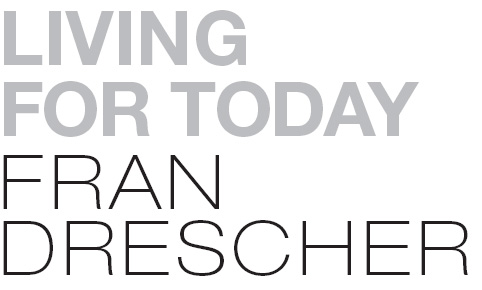
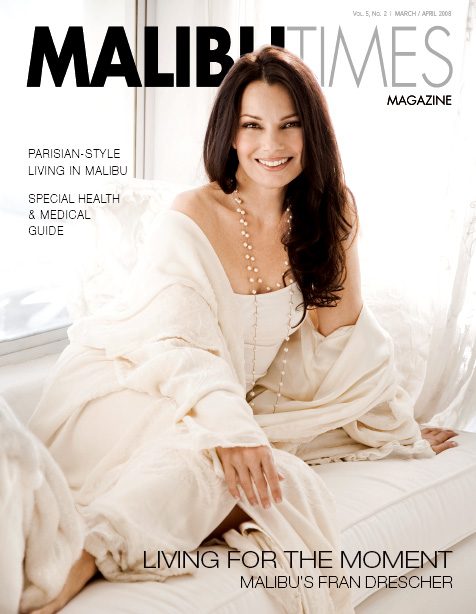
Fran Drescher is not, at least outwardly, a serious woman. The entertainer and Malibu resident is quick with a joke, regardless of the topic. And not long into a conversation with her, one hears her trademark nasal laugh for which she is known. But the humorous woman who entertained millions in the nineties with the show she co-produced and starred in, “The Nanny,” is taking on a very serious issue, cancer.
Drescher, fifty, is leading a movement to prevent other women from meeting a fate she nearly faced. She became afflicted with uterine cancer in 1997, but it took more than two years and eight doctors before she ever learned she had it. Luckily for her, the disease was still in Stage I when it was finally discovered, and there was still time to do something about it. But Drescher later learned many women have not been so lucky. So last year, she formed the nonprofit Cancer Schmancer Movement, with a goal for all women to be able to have their cancer detected before it’s too late.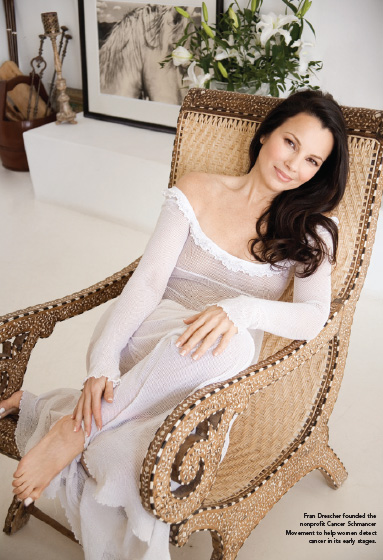
“Many women will be misdiagnosed,” Drescher said. “Some women will end up dying because the cancer they have has actually progressed to a point where survival is extremely difficult.”
Launched last year with a celebrity-filled celebration at a New York City restaurant, Cancer Schmancer, which is the name of the book she published in 2002, has already achieved a couple of success stories in its short life. In December, President George W. Bush earmarked six and a half million dollars toward Johanna’s Law, which requires the United States Department of Health and Human Services to launch a program to educate women and health professionals about the signs and symptoms of gynecological cancer. And in January, California Assembly Speaker pro Tempore Sally Lieber introduced a bill sponsored by Drescher requiring health insurers to expand coverage of screening and diagnostic tests for women’s cancer.
“When a situation becomes repugnant to me, I want to do something about it,” Drescher said. “I had cancer, and I couldn’t just walk away from the issue.”
And Drescher does not just simply lend her name to the organization; she is heavily involved with nearly every aspect of the movement, including appearing before state and federal officials to speak about the issues.
“This isn’t like some celebrity saying ‘I’ll be a spokesperson for the American Cancer Society,’” said Southern California medical oncologist and hematologist Cary A. Presant, who sits on the Cancer Schmancer Board of Directors. “This is somebody starting her own American Cancer Society, and really putting a lot of time and energy into it.”
And Drescher’s time and energy is being spent because she knows the terrible shock of learning about having a deadly disease so late in the game.
Drescher first experienced her symptoms in 1997, with bloodstains between menstrual cycles and pelvic cramps after sex. She wrote about her first doctor visit regarding the symptoms in her 2002 book: “So I pulled up my pants and left with a sample bag of Chinese weight-loss herbs and a clean bill of health. I had cancer at the time.”
She continued to see doctor after doctor, and they all thought she was pre-menopausal. The idea of her having uterine cancer did not even come up because women with uterine cancer were usually older or obese.
The doctors said it was not necessary to do a dilatation and curettage procedure (D&C), which would have discovered her cancer.
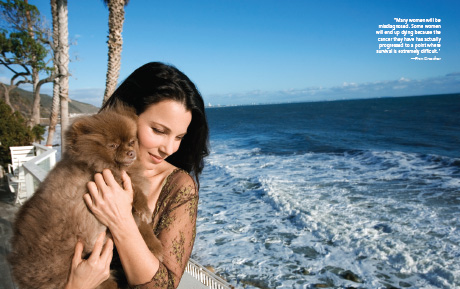
“Many women will be misdiagnosed. Some women will end up dying because the cancer they have has actually progressed to a point where survival is extremely difficult.” —Fran Drescher
“I was just happy to be too young for anything,” said Drescher, who regrets she did not ask further about testing at the time. Then, finally, with doctor number eight the D&C was done, and she learned the truth of what was ailing her. “It was a horror, I dropped to my knees,” Drescher said about her reaction to the news. “I had to call my parents and tell them I had cancer. I knew there was something wrong with me, but when the doctor ultimately told me, I felt betrayed by the medical community and by my body. I wished I could be anybody but me.”

Drescher’s Malibu ocean home is filled with a great deal of artwork, including antique miniatures from Europe.
She soon had a radical hysterectomy, which involves the removal of the fallopian tubes, ovaries and parietal lymph nodes. Although this rid her body of the cancer, it was emotionally difficult for Drescher, a woman who has never had children. It was during her book tour when Drescher learned her story was not unique and that many women have been misdiagnosed, often not learning of what they had until it was far too late. And that’s when she decided this needed to change.
Dr. Presant stressed the importance of what Drescher is doing because of how treatable women’s cancers can be when found early. “Uterine cancer, when found in the earliest stage, which is possible with a vaginal ultrasound, is ninety-six percent curable,” said Presant, noting that as years go by, the cure rate goes down considerably.
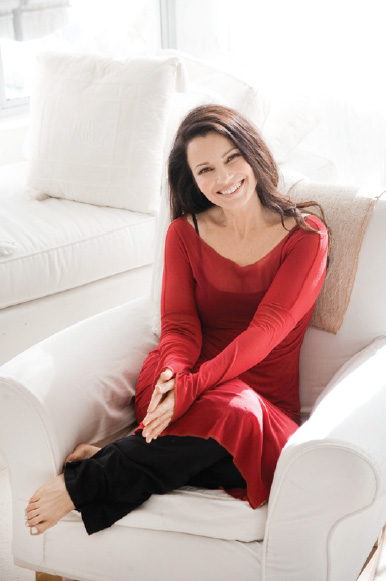 He said luck had a lot to do with why Drescher’s cancer was still in Stage I when she finally learned about it. “People can’t expect to be that lucky all the time,” Presant said. “Thank goodness she was fine, and we’re just very proud of her success and her survivorship. We’re also really indebted to her for starting this movement.” He also noted he hopes Cancer Schmancer will one day address cancer afflicting men and children, too.
He said luck had a lot to do with why Drescher’s cancer was still in Stage I when she finally learned about it. “People can’t expect to be that lucky all the time,” Presant said. “Thank goodness she was fine, and we’re just very proud of her success and her survivorship. We’re also really indebted to her for starting this movement.” He also noted he hopes Cancer Schmancer will one day address cancer afflicting men and children, too.
Drescher, who grew up in Queens, lives a bicoastal life, with a home in New York City as well. But her main residence is an ocean side house on Pacific Coast Highway in Malibu. When one first enters her home, the most noticeable thing is the beauty of the bright white walls, furniture and accessories.
There is a great deal of artwork, ranging from paintings and sketches to antique miniatures from Europe. Drescher wakes up to an Ed Ruscha painting next to her bed every day depicting a faded sailboat behind the word “Today” written three times. “That’s how I approach life, living for the moment,” she said. “I live for today.” Drescher jokes how she considers herself seven years old, with her birthday being June 21, 2000, the day she was cleared of her cancer.
For now, Drescher lives with her Pomeranian named Esther Drescher, but she said she hopes to eventually have another relationship. (She divorced her husband, a high school sweetheart, in 1999. This was followed by a four-year relationship with a man sixteen years her junior.) And she has also thought about adopting a baby. Career-wise, she said she is working on a screenplay, which she plans to direct. And she is also developing a television sitcom. “I still want to do more with my acting, writing and directing career, which I miss,” Drescher said. And being a cancer survivor has changed how she looks at life.
“I think I have a deeper sense of how vulnerable I am and how quickly things can turn on a dime, and how important it is that we live each day as fully as possible, and not become enslaved by the rat race.”






















